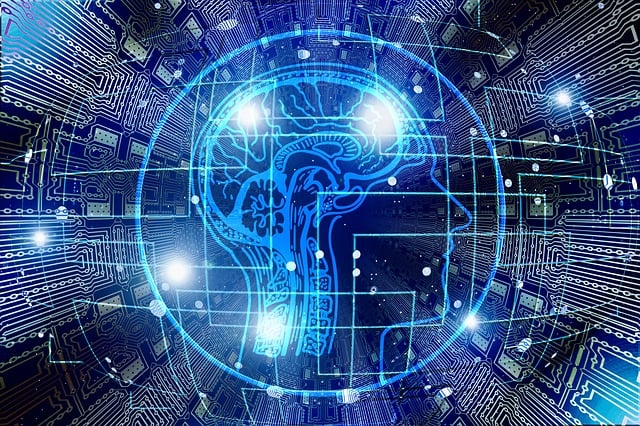The Pentagon has signaled an ambitious push to integrate artificial intelligence (AI) into the United States’ nuclear weapons systems, aiming to enhance the effectiveness and precision of its nuclear deterrence capabilities. Late last month, Air Force Gen. Anthony J. Cotton, the head of U.S. Strategic Command (STRATCOM), stated that the command was “exploring all possible technologies, techniques, and methods” to assist with strengthening U.S. defense systems, particularly within the nuclear realm.
This announcement marks a significant development in the ongoing evolution of defense technologies, as the Pentagon seeks to leverage AI to modernize and fortify the U.S. nuclear deterrence posture in an era of increasingly complex global security challenges. The integration of advanced technologies like AI could significantly enhance the United States’ ability to respond to nuclear threats, improve decision-making speeds, and maintain a credible nuclear deterrence in a rapidly evolving strategic environment.
AI’s Role in Nuclear Systems
AI has the potential to impact multiple aspects of nuclear weapons systems, from command and control functions to simulations and predictive maintenance. The Pentagon’s interest in AI integration is part of a broader effort to modernize the nation’s nuclear capabilities, which include land-based missiles, nuclear bombers, and submarine-launched ballistic missiles (SLBMs).
Some specific areas where AI could play a key role include:
- Improved Decision-Making: AI can help streamline and enhance the decision-making process during nuclear crises by providing military leaders with real-time analysis of intelligence data, potential threats, and strategic options. This could significantly reduce response times, particularly in high-pressure situations.
- Autonomous Systems: AI could enable the development of more advanced autonomous defense systems, capable of detecting and responding to threats in real time. This might include automated adjustments to nuclear weapons’ targeting systems or the development of AI-driven defensive systems to counter incoming nuclear attacks.
- Simulation and Modeling: AI could be utilized to enhance nuclear simulations, allowing military strategists to more effectively model the outcomes of potential scenarios, including the use of nuclear weapons. By using machine learning algorithms, simulations could be more precise and capable of simulating a wider range of real-world contingencies.
- Predictive Maintenance: AI could be employed to monitor the health and functionality of nuclear weapons systems, ensuring that critical components are in good working order. Predictive maintenance powered by AI algorithms could anticipate potential failures and minimize downtime for key systems.
Strategic Considerations and Ethical Questions
While the potential benefits of AI in nuclear systems are clear, the move also raises significant strategic, ethical, and security concerns. The rapid evolution of AI technology presents both opportunities and risks, particularly in areas like autonomy and escalation control.
Some of the key concerns include:
- Reliability and Control: As AI systems become more autonomous, there are worries about whether human oversight could be effectively maintained in critical situations. If AI-driven systems make decisions about the deployment or use of nuclear weapons, the potential for unintended escalation or mistakes could rise.
- Security Risks: Integrating AI into nuclear systems also introduces the potential for new cyber vulnerabilities. Hackers or adversaries could exploit weaknesses in AI-driven command and control networks to compromise U.S. nuclear capabilities, raising concerns about the security of these systems.
- Arms Race Concerns: The Pentagon’s AI-driven nuclear strategy could potentially spark a new arms race, with adversaries seeking to develop similar AI-enhanced capabilities to maintain their nuclear deterrence. This could lead to an increased reliance on AI-based decision-making in weapons systems, which could further destabilize international security.
- Ethical Considerations: The use of AI in nuclear weapons systems also raises fundamental ethical questions about the role of autonomous systems in life-and-death decision-making. Should AI be trusted to play a role in the use of such devastating weaponry, or should human judgment always be central to the decision?
Global Reactions and Strategic Implications
Internationally, the Pentagon’s move to incorporate AI into nuclear weapons systems has sparked a range of reactions. Some experts view the push as an essential modernization effort to ensure the U.S. remains competitive in a changing global landscape, particularly as countries like Russia and China continue to develop advanced AI and nuclear capabilities.
On the other hand, critics warn that AI-enhanced nuclear weapons systems could increase the risk of miscalculation and accidental conflict, especially in a high-stakes scenario where milliseconds can make the difference between a strategic success and catastrophic failure.
Global arms control advocates argue that the Pentagon’s push for AI integration could undermine existing arms control treaties and further erode international norms around the use of nuclear weapons. In this context, diplomatic channels will likely need to play a central role in managing the strategic balance and ensuring that AI-enhanced nuclear systems do not destabilize global security.
Conclusion
The Pentagon’s exploration of AI to enhance the capabilities of U.S. nuclear weapons systems represents a significant shift in how the U.S. military approaches nuclear deterrence. By leveraging AI to improve decision-making, increase the speed of responses, and modernize critical systems, the United States aims to maintain its strategic edge in the face of evolving threats.
However, the integration of AI into such a high-stakes domain raises serious questions about control, security, and the risk of accidental escalation. As the Pentagon moves forward with these technologies, it will be critical to balance innovation with safeguards to prevent the potential dangers of autonomous decision-making in nuclear warfare.
References:
- Pentagon’s Interest in AI for Nuclear Command – Reuters
- US Strategic Command and AI Integration – The New York Times
- AI in Military Systems – The Pentagon’s AI Strategy
- AI Ethics and Nuclear Systems – Global Security Newswire



